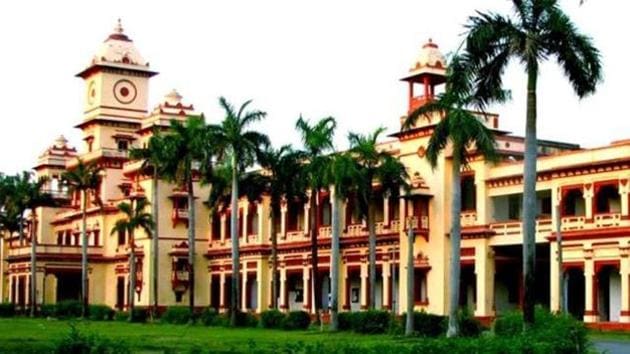BHU students grilled on Kautilya’s GST, Manu’s globalisation in MA exam
Several postgraduate students of political science at Banaras Hindu University were stumped when they confronted these two topics in their semester exam on “social and political thought of ancient and medieval India”.
The goods and services tax (GST) in ancient Indian political-philosopher Kautilya’s treatise Arthashastra. Or Manu, another ancient philosopher, as the first to think of globalisation.

Several postgraduate students of political science at Banaras Hindu University (BHU) were stumped when they confronted these two topics in their semester exam on “social and political thought of ancient and medieval India” on Monday.
“Write an essay on (the) nature of GST in Kautilya’s Arthashashtra.” This was question number five, carrying 15 marks.
The optional question was equally tricky. “Manu is the first Indian thinker of globalisation. Discuss.”
Many students said these questions were part of the syllabus taught in their MA first semester.
Prof Kaushal Kishore Mishra, who teaches the subject, said as much.
“Social and political thought of medieval India covers political thinkers such as Kautilya, Kamandak, Shukra and the taxation system of that time … I have been teaching the subject for 40 years,” he said.
He explained that the taxation system in monarchy is part of Kautilya’s Arthashastra, a Sanskrit treatise on political diplomacy, economy and military strategy.
“It talks of a single-tax system, including 13 slabs. Those saying that the question is not part of the syllabus have no idea of the topic. It was introduced in the syllabus in 1939,” Mishra said, asserting that the concept of GST was derived from the ancient book.
Kautilya, also known as Chanakya, was the chief minister and mentor of emperor Chandragupta Maurya, who ruled a vast swathe of the subcontinent and was a contemporary of Alexander.
Mishra also justified the optional question, saying Manu talked about the entire world and was the first global thinker.
“It has been widely discussed in the book Manusmriti Me Rajtantra (pages 57-65). Manu’s ideas were discussed in China, the Philippines, New Zealand, Sri Lanka, Japan and many other countries,” he said.
“There is no doubt about it. It has been proved in a research at the BHU’s political science department.”
But the two questions triggered a debate as critics alleged that these were part of a drive by Hindu hardliners to promote ancient philosophies in the contemporary context.
“The taxation system in Arthashastra and the GST are no way connected. Arthashastra was for monarchy and GST is introduced in a democracy. It is not appropriate to link GST and Kautilya and create a question for an examination,” said Dhanajay Tripathi, a political analyst at the university.





